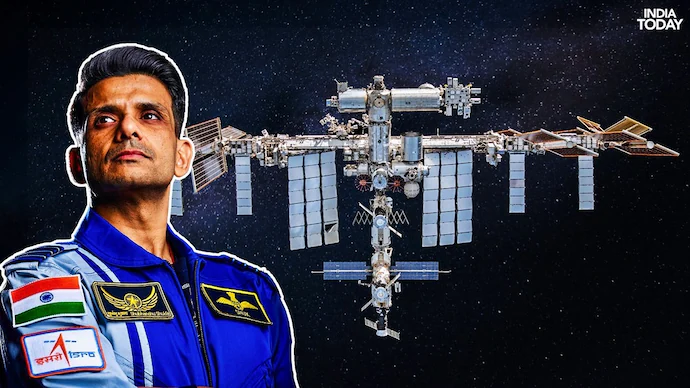May 18, 2025 – Space Exploration Desk
In a significant step for India’s space and agricultural research, Group Captain Sudhanshu Shukla is set to embark on a landmark mission aboard the International Space Station (ISS) later this month. Scheduled for launch on May 29 as part of Axiom Mission-4, Captain Shukla will conduct groundbreaking experiments aimed at cultivating nutrient-rich superfoods in the unique microgravity environment of space.
This initiative is a collaboration between the Indian Space Research Organisation (ISRO), Axiom Space, and various agricultural research institutions in India. The experiments will focus on growing two widely consumed and highly nutritious crops—green gram (moong) and fenugreek (methi)—which are staples in Indian diets and recognized globally for their health benefits.
The Mission and Its Objectives
Growing food in space is one of the biggest challenges facing scientists and space agencies around the world, especially as plans for longer-duration missions to the Moon, Mars, and beyond are gaining momentum. Microgravity, limited space, and different environmental conditions make traditional farming methods impossible, forcing researchers to innovate new ways to produce fresh and sustainable food sources off Earth.
Captain Sudhanshu Shukla’s experiments will investigate how these superfood plants adapt to the microgravity environment on the ISS. The mission aims to understand the growth patterns, nutrient content, and potential yield of moong and methi when cultivated in space, which could open doors to new agricultural technologies for space explorers.
Dr. Anjali Verma, head of ISRO’s Space Biology Division, described the mission as an important move toward achieving greater self-reliance in space living environments. “If we can successfully grow superfoods in orbit, it not only benefits astronauts on long missions but also provides insights into sustainable farming techniques that could be applied on Earth, particularly in areas facing harsh climate conditions.”
Why Moong and Methi?
Green gram and fenugreek were chosen for this mission due to their rich nutritional profiles and adaptability. Moong is a legume packed with protein, vitamins, and minerals, while methi is renowned for its antioxidant properties and health-boosting phytochemicals. Both crops are relatively fast-growing and require minimal resources, making them ideal candidates for space cultivation.
Moreover, these superfoods play an essential role in Indian cuisine and traditional medicine, highlighting the cultural significance of this experiment. Successful cultivation of these crops in space would mark a remarkable achievement for India’s contributions to international space agriculture research.
Advancing India’s Role in Space Research
Captain Shukla’s upcoming mission is also symbolic of India’s growing ambitions in human spaceflight and scientific exploration. Following the success of the Gaganyaan program, which sent India’s first astronauts into low Earth orbit, this mission represents a shift toward more complex scientific investigations in space.
ISRO Chairman Dr. V. Narayanan conveyed his pride in the nation’s growing achievements in space technology. “Our efforts are not limited to exploration; they extend to understanding life beyond Earth and solving challenges for humanity’s future. Cultivating superfoods in a microgravity environment represents a new and exciting challenge.
Potential Benefits on Earth
Beyond its applications in space, the research on growing superfoods in microgravity could have profound implications for sustainable agriculture on Earth. With climate change threatening food security worldwide, innovative farming methods are urgently needed.
The space experiments may reveal new ways to optimize growth, improve nutrient density, and reduce resource usage in crops, insights that can be translated into vertical farming, hydroponics, and other modern agricultural practices.
International Collaboration and Future Prospects
This mission is part of the broader Axiom Space program, which facilitates private and international astronauts’ access to the ISS. India’s participation underscores the country’s collaborative spirit in global space exploration.
Looking ahead, scientists envision expanding the range of crops grown in space, including fruits, vegetables, and medicinal plants, to create a fully sustainable space farming ecosystem. Such advances will be essential for future lunar bases and Mars missions, where resupply from Earth is limited.
Captain Sudhanshu Shukla’s journey is a source of inspiration for young scientists and aspiring astronauts across India, highlighting the exciting intersection of space technology and life sciences.




